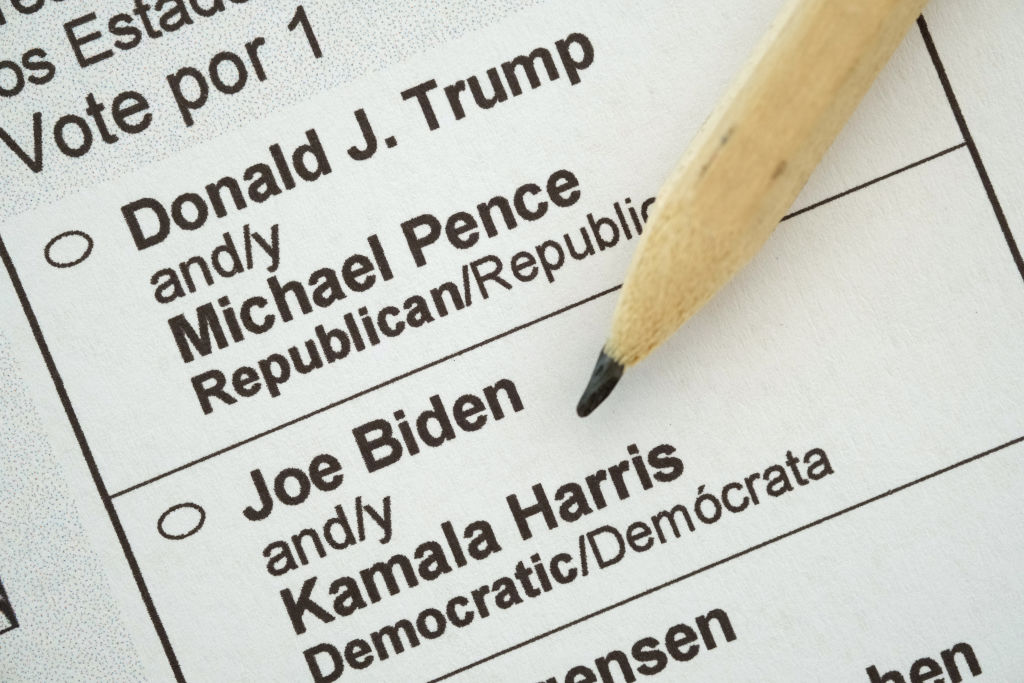Missouri lawmakers discuss election security in hearing marked by conspiracy theories

The Missouri House Elections Committee convened Tuesday to discuss ways to alter the initiative petition process and improve election security.
And over the course of more than three hours, lawmakers heard a parade of debunked conspiracy theories about the 2020 election.
“I’m convinced the country suffered the greatest cyber attack in the history of the world that was ordered and orchestrated by the Chinese Communist Party,” retired military analyst David Stevens told the committee.
Stevens was referencing a conspiracy peddled by MyPillow CEO Mike Lindell that claims the Chinese were behind President Joe Biden’s 2020 victory. During his August symposium, Lindell offered $5 million to any cyber security expert who could prove his claims wrong, which at least one former military cyber expert, a longtime Republican from Texas, has said he easily can.
Others testifying Tuesday were similarly enamored with Lindell’s theories, including Rep. Ann Kelly, a Lamar Republican who doesn’t serve on the elections committee but testified about attending a symposium in Sioux Falls, South Dakota, organized by Lindell.
Missouri resident Keith Carmichael testified about false voter-fraud theories from Ohio mathematician Douglas Frank, which have been disproven by a Republican-led Michigan Senate Oversight Committee. Working together, Frank and Lindell contend they can prove voting machines were hooked up to the internet, which both Ohio and Missouri laws prohibit.
“Just a moment ago, a veteran military analyst told you that you were attacked,” testified Missouri resident Keith Carmichael. “I don’t know if you were listening. Nobody ran out. I didn’t see anybody call home. I know during 1941 when Pearl Harbor was attacked, I imagine people just stopped what they were doing.”
There is no evidence of widespread voter fraud or irregularities during the 2020 election.
The witnesses were met with numerous objections from both Republican and Democrat committee members. Election officials at both the state and county levels also testified for several hours to dispel the false claims.
“We do have a very secure system that all of our election authorities use,” said Trish Vincent, chief of staff for Secretary of State Jay Ashcroft. “We put in layers of security to make it doubly secure.”
However, Vincent quickly added that a bill to require a photo ID to vote — an idea that has been repeatedly rejected by Missouri courts — would be one way to dispel mistrust and increase voter confidence.
“We’ve been wrestling with that for a number of years,” she said.
The GOP-dominated General Assembly made requiring a photo ID to vote and making it harder to change state law through the initiative petition process top priorities this year. But the session ended in May without any of the election bills finding their way to Gov. Mike Parson’s desk.
Tuesday’s hearing is seen as clear indication that election legislation will once again sit atop the GOP agenda when lawmakers return to Jefferson City in January.
Missouri is a paper ballot state. We certify elections off of paper. We use electronic equipment on election night in order to be able to put uncertified results out to the public.
– Greene County Clerk Shane Schoeller
Rep. Ashley Aune, D-Kansas City, said Tuesday’s hearing was part of a strategy to sow seeds of doubt and distrust in the electoral system.
Even though the Republican committee members didn’t outwardly support the election-fraud conspiracy theories touted by witnesses, Aune said she had serious concerns about the level of legitimacy they gave the claims by inviting witnesses to talk about them.
“They just need to put it out there, and leave people to stew on it,” Aune said. “It paves the way to create policies to make our elections ‘safer’ if they think they are unsafe.”
At one point in the meeting, the committee’s chair Rep. Dan Shaul, R-Jefferson, said that he brought forth the issues of “data hacking” to make sure the state’s election authorities have the tools they need.
“That was my purpose today to make sure that we talked about these odd things that could impact the integrity and the trustworthiness of our systems,” Shaul said.
The first hole in Lindell’s Chinese cyber attack theory is that election authorities don’t certify election results via the Internet, said Rep. Peggy McGaugh, a Carrollton Republican, vice chair of the elections committee and a former county clerk.
Greene County Clerk Shane Schoeller, a Republican and former state legislator, agreed.
“Missouri is a paper ballot state,” Schoeller said. “We certify elections off of paper. We use electronic equipment on election night in order to be able to put uncertified results out to the public.”
All that equipment is certified by the Secretary of State’s Office. They use an encrypted memory stick that’s certified by a bi-partisan election team.
Schoeller walked through the “rigorous auditing” steps that the election results go through after election night.
“We have these safeguards in place,” he said. “I think we all agree, we are going to trust but we are going to verify.”
Aune said a public school in her district had to close down for two days because their system was hacked.
She co-sponsored the Missouri Cybersecurity Act, which lawmakers approved in May and will establish a commission of cybersecurity experts to address issues like this. It goes into effect on Aug. 28.
If lawmakers are interested in cybersecurity, they should ignore baseless election conspiracies to focus on safeguarding utilities and entities like public schools, she said.
“That’s where our time should be spent,” Aune said. “Let’s put our attention where we know we need it.”


